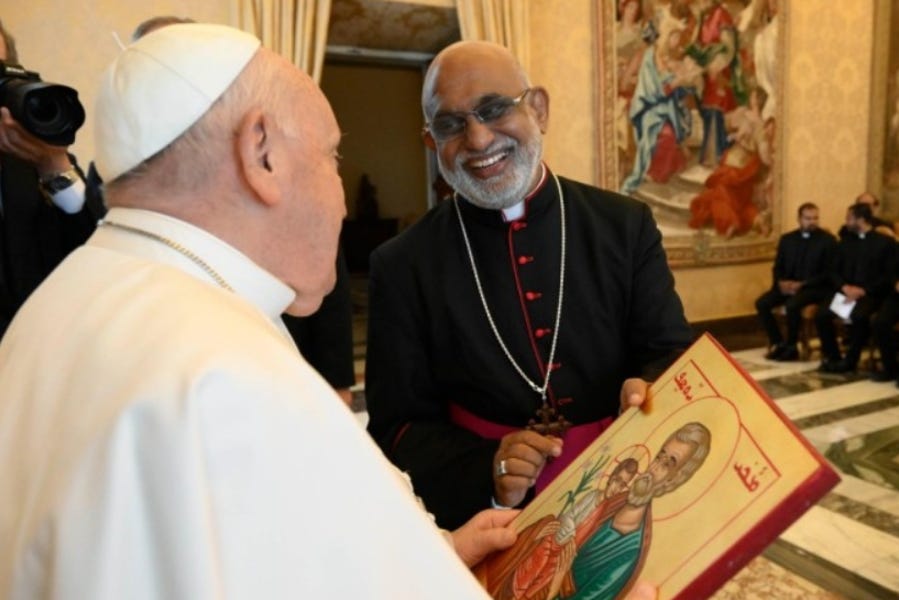Why Pope Francis is meeting the new Syro-Malabar leader
Major Archbishop Raphael Thattil met with Pope Francis Monday for the first time since his election as head of the Syro-Malabar Catholic Church
Major Archbishop Raphael Thattil met with Pope Francis Monday for the first time since his election as head of the Syro-Malabar Catholic Church in January.

The meeting was a chance for both men to take st…
